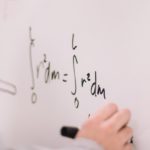 Maths has a reputation for being inclusive, with rewards tending to flow to those most talented regardless of their background. Indeed, a recent study from Dartmouth revealed that the Fields Medal has made the discipline more inclusive.
Maths has a reputation for being inclusive, with rewards tending to flow to those most talented regardless of their background. Indeed, a recent study from Dartmouth revealed that the Fields Medal has made the discipline more inclusive.
The study explored how effective the prize has been in making maths more representative across nations and identities. The authors highlight how the analysis highlights the history of international migration among the very best in the maths world.
“With so much recent discussion on equality in academia, we came to this study recognizing that math has a reputation of being egalitarian,” the researchers say. “Our results provide a complex and rich story about the world of math especially since the establishment of the Fields Medal.”
Diverse field
The researchers explain that the prize has previously been criticized for the rewarding of existing power structures rather than aiming to make maths more inclusive at the elite level. They wanted to test whether this claim is actually true.
The results suggest a bit of both, as while the prize has elevated mathematicians from marginalized countries, there is also a degree of self-reinforcing behavior that mostly occurs through the mentoring relationships that exist among the elite of the maths world.
For instance, the data shows that the award was successful in integrating mathematicians from Germany and Japan after WWII. It also shows, however, that two-thirds of the 60 medalists awarded have come from the same “ancestral tree”.
For instance, groups with African, East Asian, and Arabic language identities remain under-represented at the elite level, even as diversity had increased in general.
“It’s a privilege for a young mathematician to inherit a powerful network of relationships from an influential academic advisor,” the researchers say. “The growing number of doctoral degrees awarded to international mathematicians in the U.S. indicates that mathematics can be a powerful integrative force in our common humanity.”
The importance of mentoring
The results underpin the crucial role mentoring plays in helping mathematicians get to the elite level and into contention for the Fields Medal.
“There are many sources of inequality in elite-level math and academia. Our goal was to characterize how a single factor–mentorship–plays a role, while telling a comprehensive story about mathematics,” the researchers explain.
They believe their work goes beyond previous studies into elitism in maths as those studies have tended to focus on the citation record of mathematicians rather than the structural forces that make it hard to break into the elite.
The results suggest that the prize would be well served by returning to its roots in order to better achieve its goal of elevating voices from marginalized communities.